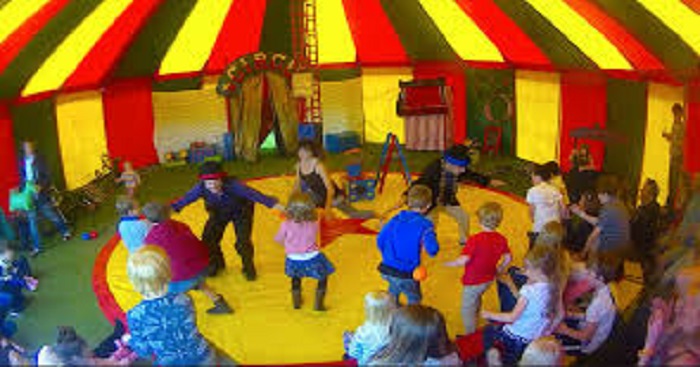
The Proven Benefits of Early Childhood Education
Early childhood education has often been described as the "foundation of human development." With growing focus and investment in this area, it is critical to understand its true impact on our children. Is preschool just glorified daycare, or does it truly shape the minds and futures of our little ones? In this comprehensive article, we'll delve into the tangible benefits of early childhood education, supported by the latest statistics, key research studies, expert opinions, and much more.
"The best investment any society can make is in the early years of a child's life." - James Heckman, Nobel Laureate in Economics.
Table of Contents
- Historical Context and Evolution of Early Childhood Education
- The Latest Statistics: A Snapshot
- Psychological Benefits
- Cognitive and Academic Advantages
- Key Research Studies: Long-term Impact
- Expert Opinions and Testimonials
- Comparative Analysis: With vs Without Early Education
- Policy Implications and Government Initiatives
- Conclusion and Call to Action
Historical Context and Evolution of Early Childhood Education
Early childhood education is not a novel concept. The roots can be traced back to the early 19th century, with pioneers like Friedrich Froebel and Maria Montessori revolutionizing how we think about education during formative years. Understanding the historical evolution of early childhood education is essential to appreciate its significance in the modern era.
Milestones in Early Education
- 1837: Friedrich Froebel establishes the first kindergarten in Germany.
- 1907: Maria Montessori opens her first classroom, "Casa dei Bambini" in Rome.
- 1965: Head Start program launches in the United States.
- 1980s-90s: Recognition of early childhood education as critical for future academic success.
- 2000s-today: Surge in research and policy focus on early learning outcomes.
The Latest Statistics: A Snapshot
Numbers often speak louder than words. Let's look at some compelling statistics that underline the importance of preschool education.
- Improved Reading Skills: 72% of children in quality preschool programs show better reading skills by age seven, compared to their non-preschool peers.
- Higher Graduation Rates: Children with early education are 24% more likely to graduate high school.
- Long-term Earnings: An investment in early childhood education yields an 8-10% return per annum through increased future earnings.
Psychological Benefits: More Than Just ABCs
Beyond the classroom curriculum, early childhood education plays a pivotal role in the psychological and emotional development of a child.
Emotional Intelligence
- Self-Regulation: Children learn vital skills such as patience, sharing, and turn-taking.
- Self-Esteem: Regular interactions in a structured environment help build confidence.
Social Skills
- Teamwork: Children learn the importance of working in a group and cooperating with peers.
- Communication: Regular interaction fosters better communication and understanding of social cues.
Cognitive and Academic Advantages: The Building Blocks of Success
"Intelligence plus character—that is the goal of true education." - Martin Luther King Jr.
Core Skills
- Literacy: Enhanced vocabulary and reading comprehension.
- Mathematics: Improved understanding of basic mathematical concepts.
Cognitive Development
- Critical Thinking: Early learning cultivates problem-solving abilities.
- Creativity: An environment that encourages imagination and exploration.
Key Research Studies: Long-term Impact
Numerous research studies have substantiated the positive impact of early education. Some seminal studies include:
- Perry Preschool Study: Showed a return of $7 for every $1 invested in early education.
- HighScope Study: Concluded that participants in early education were more likely to own a home by age 40.
- Abecedarian Project: Demonstrated improved cognitive abilities and academic outcomes in children provided high-quality early education.
Expert Opinions and Testimonials
"Every dollar we invest in high-quality early childhood education can save more than seven dollars later on." - Barack Obama
Experts like Dr. Jack Shonkoff, a professor at Harvard University, emphasize the "neurobiological argument" for early education, citing the rapid brain development in children aged 0-5.
Testimonials
- Parents: "Preschool was a game-changer for my child; he's now excelling in first grade."
- Educators: "Children who attended preschool are generally more prepared, both socially and academically."
Comparative Analysis: With vs Without Early Education
Children with early education tend to outperform those without in various domains:
- Literacy Rates: Higher by 30%.
- Social Skills: Markedly better in children who attended preschool.
- Academic Success: Greater chances of pursuing higher education and career advancement.
Policy Implications and Government Initiatives
Government initiatives like the "Universal Pre-K" in the U.S. and the "Early Years Foundation Stage" in the U.K. are evidence of growing recognition of the importance of early learning.
Recent Policies
- Child Care Access Means Parents in School Program (CCAMPIS): Supports low-income student-parents.
- Early Head Start: Focuses on infants and toddlers in low-income families.
Conclusion and Call to Action
The benefits of early childhood education are vast and enduring, affecting not just the individual but society at large. If we truly want to build a better future, the time to invest in early education is now. Whether you are a parent, an educator, or a policy maker, remember: Early education is not just an option; it's a necessity.
"Education is the most powerful weapon which you can use to change the world." - Nelson Mandela
References
- Heckman, J. J. (2006). "Skill formation and the economics of investing in disadvantaged children." Science, 312(5782), 1900-1902.
- Schweinhart, L. J., et al. (2005). Lifetime effects: The HighScope Perry Preschool study through age 40. HighScope Press.
- Shonkoff, J. P., & Phillips, D. A. (Eds.). (2000). From neurons to neighborhoods: The science of early childhood development. National Academies Press.





